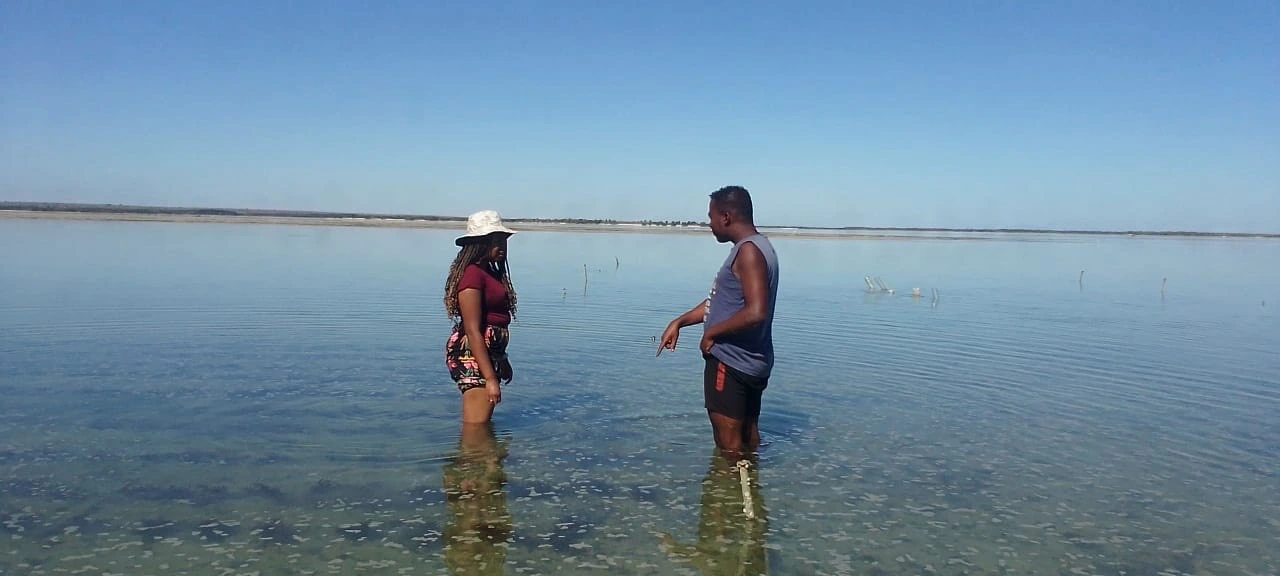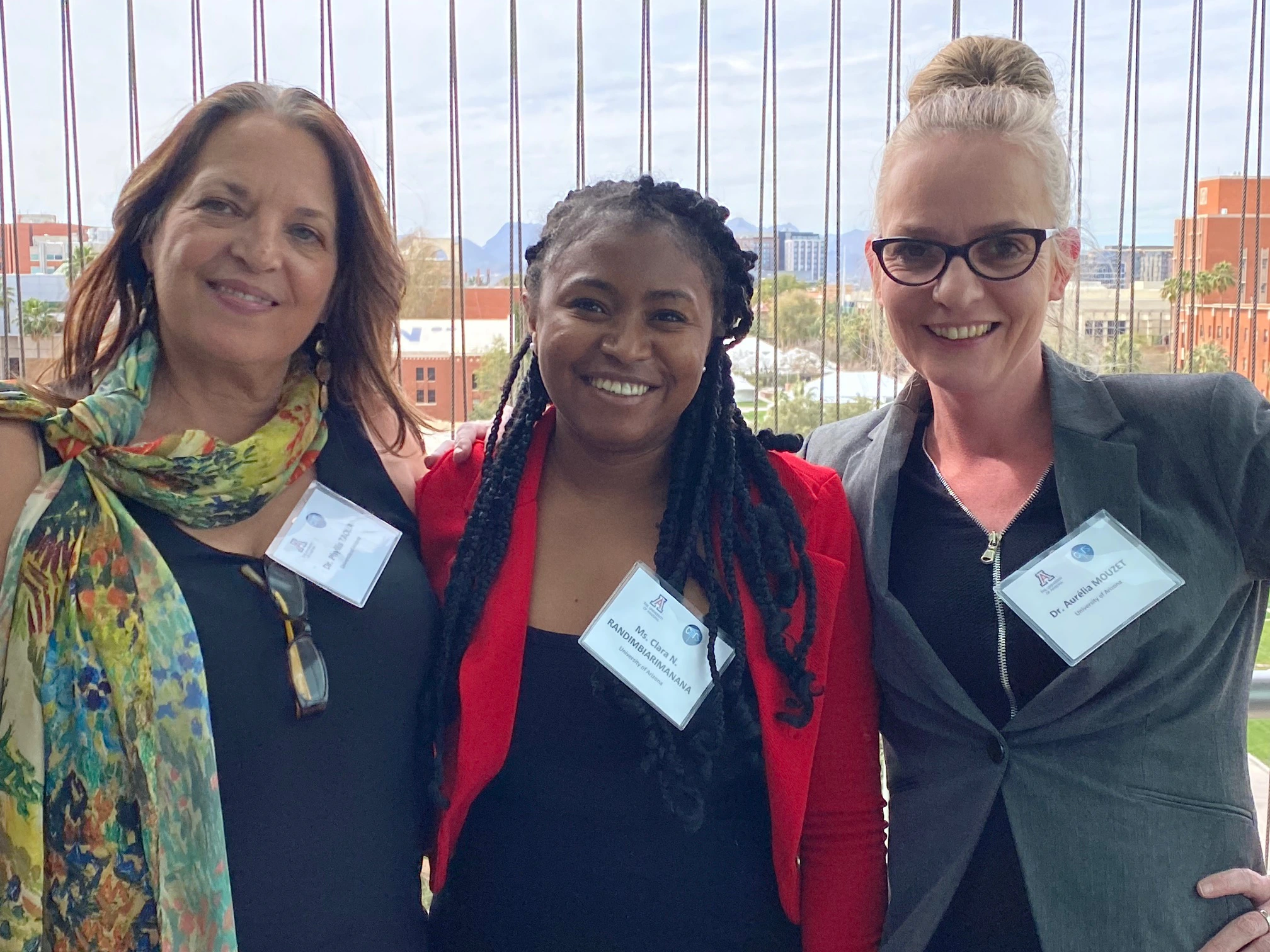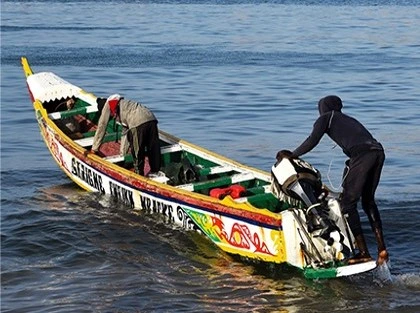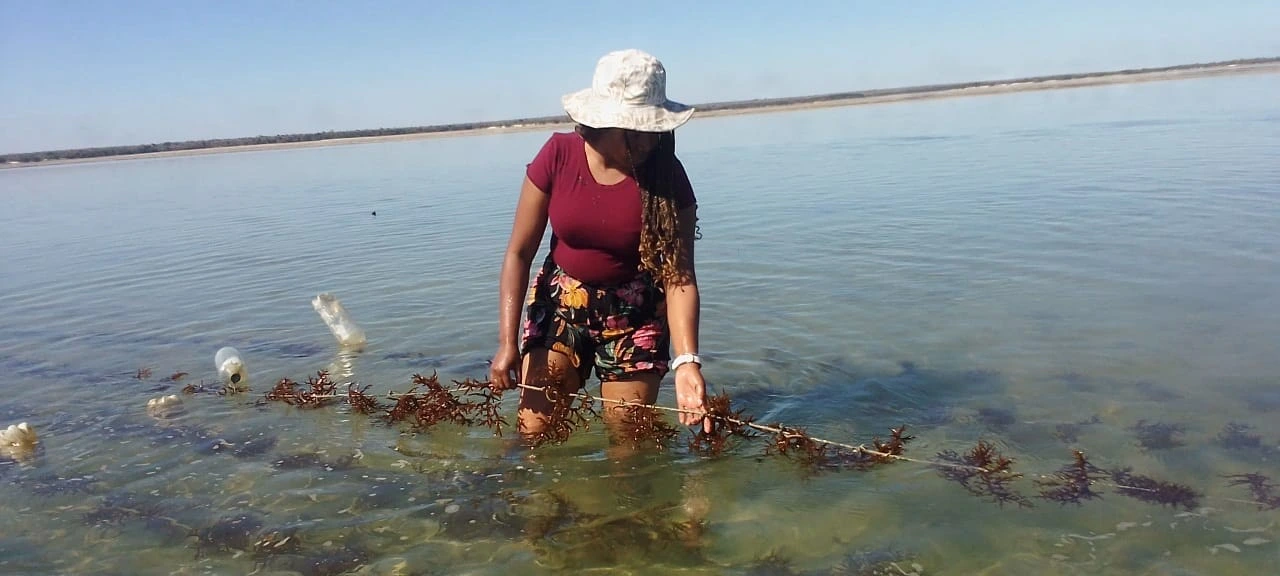Environmental Justice, Extraction and Cultural Resistance in Africa
In May, we sat down with Clara Randimbiarimanana to learn more about her research and how it has been enhanced by travel to France with the France-Arizona Institute - CNRS joint Ph.D. program.
Learn more about the project
What brought you to the University of Arizona?
I’m originally from Madagascar, but I came to the US to start my higher education. I have always been interested in complex institutional and structural issues and how they impact people’s lives. For my Ph.D., I wanted my work to have more of an applied, not just scholarly impact, so when I saw that the University of Arizona had an excellent applied anthropology program, it seemed like the best place to balance study and practical application of my work. At first, my research interest was on language politics and education but I switched gears as I realized the importance of community in policy making. I became interested in environmental issues, specifically using community and cultural knowledge to mitigate the impact of climate change on fisheries in Madagascar and Senegal.
Tell me more about your research project. Why are fisheries important places to study climate change?
I’m researching community-level knowledge in two different places. In the southwest of Madagascar, I'm looking at a small community that has relied on fisheries for centuries but has now been impacted by the presence of NGOs, fish collectors, and climate change. I want to see what techniques and knowledge about conservation the region can use to move forward and cope with change. I’m also planning to include Dakar (Senegal) as my second research site, which also has fisheries but is more focused on exporting to Europe and producing fishmeal. Though fisheries in both Madagascar and Senegal are impacted by climate change, they experience challenges differently and require different solutions. I’m still in the preliminary stages of my research, but I plan to travel to both countries to compare and contrast how fisheries in both places react to climate change. My work will center the voices of local communities, elders, and women. I want to create materials to help guide policy and possibly work with local NGOs. I want a dissertation, of course, but also something that will have a tangible impact on people and foster new conversations.
You recently moved to France. So far, how has that experience impacted you as a person and researcher?
I got here two weeks ago, and am still trying to find my way around. So far, it’s been interesting to learn the different methods and approaches my French colleagues and professors use in this discipline of study. Many of my mentors and team members work in the field of literature, which has inspired me to do more literature analysis, something I hadn’t considered before. For example, I’ve started doing some archival work with a colleague here in France. In the archives, I've discovered new things about Madagascar, including records of the French making decisions about local agriculture. These decisions seem to have been taken very lightly by the French but have had a lasting impact on agriculture in Madagascar, such as how the local fisheries function today. I look forward to incorporating new discoveries linking the past and the present in my research.
Have you experienced culture shock while interacting with your colleagues or generally while living in Paris?
Yes, what I’ve noticed is that at the University of Arizona, everything is clear and scheduled: I study, I teach, I take exams, and that’s it. In France, life is more open and there’s always a lot going on (especially right now, as there have been ongoing protests over the recent pension reform bill). It’s a different way of life. Also, before coming to France I’d studied French, but that was ten years ago. Some days I do very well with the language and other days the waitress will respond to me in English and I’ll think “Is my French really that bad!?" I really appreciate the opportunity to attend seminars at various institutions such as NewSorbonne (SorbonneNouvelle), the Ecoles des Hautes Études en Science Social (School for Advanced Studies in the Social Sciences), and Science Po Bordeaux because they’re teaching me a different kind of French. I’m learning a more academic language, which is different from what's used when ordering food. Learning academic French has opened so many doors when reading or doing archival research. I’m able to access French literature, which is especially useful when studying in two francophone countries where many of the locals speak French.
It seems that despite the language and cultural barrier, you’re making the most of your time in France. What advice would you give to someone embarking on a similar journey?
Definitely learn the language: it will open more doors for you. You’re in Paris, so speak a little bit of French! If you’re only here for a few months like me, make sure to maximize your time. Not every researcher gets this opportunity. Take advantage of the massive nature of CNRS and the network of people, and be sure to reach out to people because they are willing to help. I’ve found that it’s up to me to make this experience. It’s been a challenge and an opportunity to forge my own experience here in France.




